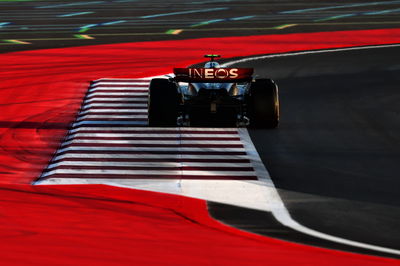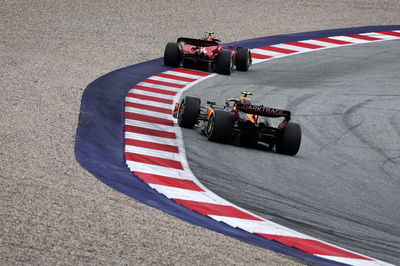FIA reveal Abu Dhabi AI trial plans to tackle F1’s track limits trouble

F1’s governing body will introduce ‘Computer Vision’ to automatically deal with any suspected track limits infringements at the 2023 Abu Dhabi season finale as part of the trial.
It is hoped the technology will be a better judge of when cars have breached track limits and lessen the need for final checks to be carried out by a human, as is currently the case.
It should also speed up the process at the FIA’s Remote Operations Centre (ROC), introduced in the wake of the review into the 2021 Abu Dhabi Grand Prix debacle.
If successful, AI will help F1 fix some of the disasters it has faced surrounding track limits infringements.
"At the moment we've 'brute forced' the situation by saying 'we need to make thousands of checks, how do we do that?” Tim Malyon, the head of the ROC, said in an FIA preview.
"Well, we throw people at it, because that's the most accurate solution. What we're looking to do now is introduce a level above ROC, and that's AI software.
"Again, it might sound strange but the methodology with this AI has a lot of parallels with discussions going on in medicine at the moment and the use of Computer Vision, for example, to scan data from cancer screening.
"What they've concluded is they don't want to use the Computer Vision to diagnose cancer, what they want to do is to use it to throw out the 80% of cases where there clearly is no cancer in order to give the well-trained people more time to look at the 20%. And that's what we are targeting.”

At the Austrian Grand Prix in July, the FIA had 1200 potential infringements to shift through.
Malyon added: “If you took out all the ones that were being erroneously reported by the loops, and then did the analysis to say all the ones that were correctly reported by the loops, were they also captured by the human, the answer was yes.
“So we basically concluded that the loops were insufficiently accurate. And that by far our most accurate solution was having a data analyst looking at the video itself. In fact, that’s an interesting element of the story - as currently, through loop positioning, through GPS positioning etc, the human still wins.”
Chris Bentley, the FIA’s single-seater head of information systems strategy, said: “We’ve turned off loops now for every circuit unless there’s a chicane, because it just gets in the way of what we’re trying to achieve. And ultimately the rule of thumb is that if it’s too close to call, then the benefit of the doubt goes with the driver.”
Mercedes driver Lewis Hamilton suggested earlier this season that the FIA should use AI to help improve F1 stewards’ calls.

![Toprak Razgatlioglu, ROKiT BMW Motorrad, BMW M 1000 RR [Gold & Goose]](https://cdn.crash.net/2024-09/GnG_1165424_HiRes.jpg?height=90)






![Johann Zarco, LCR, Honda RC213V, 2024 San Marino MotoGP, Misano, action [Gold & Goose]](https://cdn.crash.net/2024-09/GnG_1166323_HiRes.jpg?height=90)

![Jack Miller, KTM Factory Racing, KTM RC16, San Marino MotoGP, Misano, action [Gold & Goose]](https://cdn.crash.net/2024-09/GnG_1167624_HiRes.jpg?height=90)